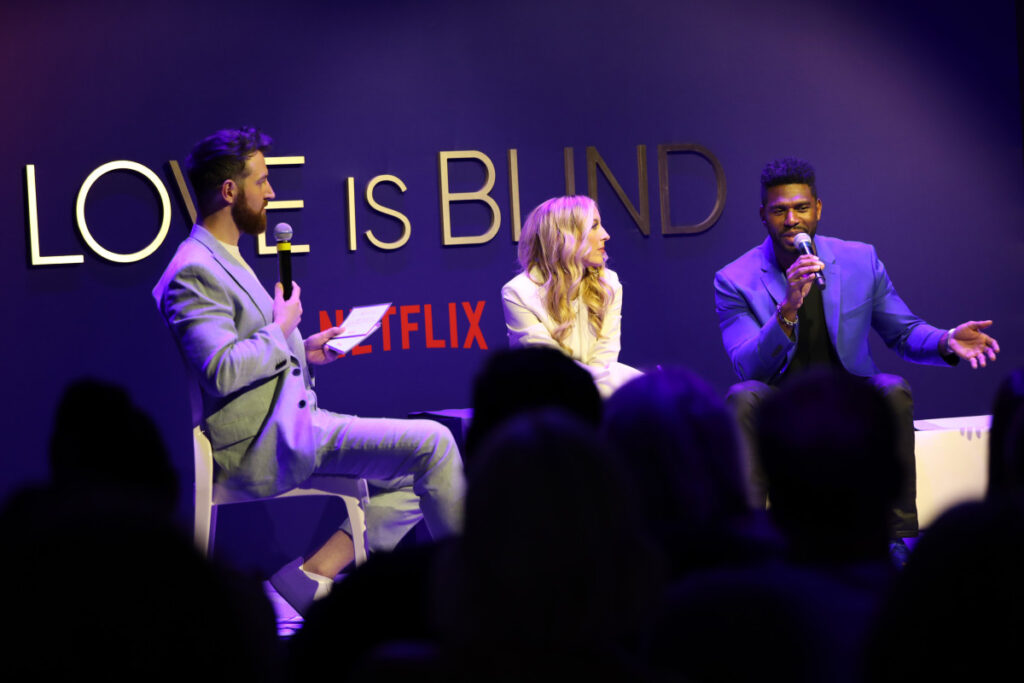Reality TV enthusiasts know how addicting these shows can be, leading us to binge-watch an entire season, sometimes more, in a single night. The drama, compelling storylines, and entertaining casts could have us hooked for hours without realizing that the watching spree has extended past our bedtimes and on to the next day.
Maybe watching modern reality TV feeds a nostalgic feeling for those who grew up watching MTV’s iconic reality shows, such as “Jersey Shore,” “Teen Mom,” and, of course, “MTV Cribs. ” Or it might just be a craving for a splash of drama in our mundane lives.
🗞️ 📺 Don’t miss the move: SIGN UP for TheStreet’s FREE daily newsletter 🗞️ 📺
Either way, reality TV could be categorized as an addiction, and if there were to be a diagnosis, some of us would shamelessly be in rehab by now.
Related: Jake Paul vs. Mike Tyson livestream fight lands Netflix in a lawsuit
Although reality TV shows have changed a lot since their inception, with networks placing stricter restrictions on their contestants and making their production companies follow tighter protocols, this industry still has many flaws that have yet to be fixed.
Netflix (NFLX) has been thriving in the reality TV space recently, producing multiple viral shows. However, the company’s gold mine might have just landed its production companies in a controversial legal battle.
Netflix’s production companies accused of multiple labor violations
On Wednesday, the National Labor Relations Board (NLRB) issued a complaint in Minnesota against the Netflix reality TV show “Love is Blind,” stating that the contestants should be reclassified as employees and eligible for worker protections.
“Love is Blind” is a dating show streamed on Netflix entailing a social experiment in which multiple single men and women go on dates in search of love while in isolated pods where they meet their potential spouses before seeing them in person. The show aims to foster authentic love connections based on personality rather than physical looks in hopes of leading to marriage.
Related: Netflix stock price dips ahead of earnings
According to the complaint, the Netflix show’s production companies, Delirium TV and Kinetic Content, made various labor violations, including the unlawful misclassification of its cast as non-employees, which prevented them from unionizing, and placed strict contractual terms related to non-compete, confidentiality, and stay-or-pay provisions.
If this complaint moves through the legal system and results in changes, it would be the first case concerning labor changes in the reality television industry. It would also allow the cast members to unionize since they are currently unable to do so as non-employee
The complaint seeks compensation for the contestants’ lost wages while on the show and their reclassification as employees.
Former reality TV contestants file lawsuits and make claims against Netflix’s production companies
This is not the first time “Love is Blind” has been called out for allegedly mistreating its cast members. Two former contestants, Renee Poche and Nicholas Thompson, filed separate unfair labor practice charges with the NLRB last year. These efforts led to the current filing by the NLRB after a lengthy investigation of the claims.
Poche’s social media posts and filing claims that while on the show, she feared for her safety after meeting her potential match in person, describing him as aggressive and reactive. In response, Delirium TV sued her for breaking the confidentiality provisions in their contract, seeking $4 million for the breach.
Thompson has also been vocal about his “awful” experience while on the show, claiming the contestants were exposed to poor working conditions and put in mentally stressful situations with little to no mental health support.
In 2022, “Love is Blind” contestant Jeremy Hartwell filed a lawsuit against the production companies for “inhumane working conditions,” which included contestants being deprived of sleep, food, and water and were paid very low wages. However, he agreed to settle his case in July and received around $1.4 million.
That same year, another contestant, Tran Dang, filed a lawsuit against the production companies claiming she was imprisoned and sexually assaulted by a contestant. The production companies denied any knowledge of the occurrences, claiming no filming occurred in private living spaces, and the contestant was free to leave whenever.
“I think it’s really sad because they are putting these people who are already in a really vulnerable position into an even more vulnerable one,” said Kelsey Barberio, a reporter and senior video producer at Parade. “They should still be treated with respect and have their basic needs met.”
The hearing for the NLRB case, which will determine whether the production companies violated the law, is set for April 2025.
Related: The 10 best investing books (according to stock market pros)
